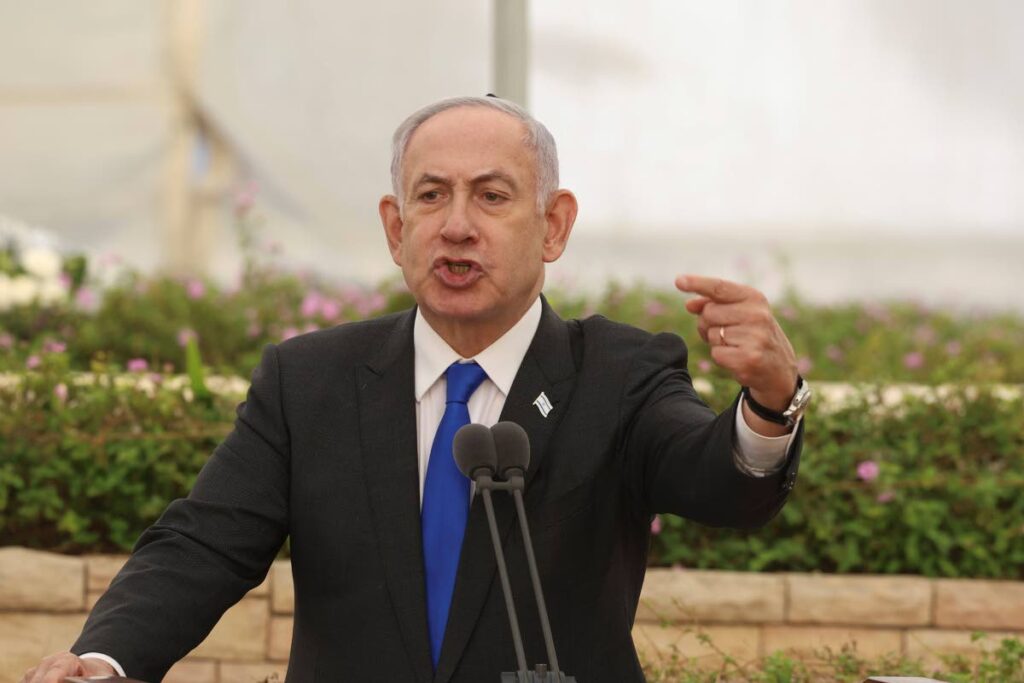You must live to tell his story

THE EDITOR: On December 6, 2023, Dr Refaat Alareer, writer, poet, activist and professor at the Islamic University in Gaza, was killed by an Israeli airstrike. Five of his family members also perished in the attack.
Alareer was renowned for documenting Gazan experiences, and, according to his friends and colleagues, he nurtured young Palestinian writers and helped them to narrate their stories in English.
As people from around the world mourned Alareer’s death, they translated the poem he had written five weeks before, If I Must Die, into 70 languages.
Efforts calling for a ceasefire in Palestine have not been entirely symbolic. The large-scale A15 protests with participants from 82 cities in 19 countries co-ordinated an economic blockade which compromised travel through key streets, airports and bridges.
Pressure from the BDS (Boycott, Divestment and Sanctions) movement prompted Scotiabank to halve its investment in top Israeli weapon-maker Elbit Systems, and a US subsidiary of Elbit to abandon its Cambridge, Massachusetts office.
The economic effects of pro-Palestinian encampments by young university protesters hold promise with Ivy League Brown University agreeing to vote on divesting the US$6.6 billion subsidy it received from Israel-affiliated companies, and Trinity College in Dublin announcing non-renewal of any business contract with Israeli companies once its final contract ends in March 2025.
San Francisco State University consented to divest US$163 million from companies which do not align with human rights standards, and Sacramento State University not to invest in companies complicit in the genocide.
Ontario Tech University has committed to scholarships for three Palestinian students and assured that there will be no consequences for any staff member or student for having joined the encampment.
In September, the United Nations General Assembly voted to terminate Israel’s unlawful presence in the Occupied Palestinian Territory, a resolution which TT endorsed. The overwhelming vote stemmed from the International Court of Justice’s ruling in July that Israel’s unlawful occupation of the Gaza Strip violated the international prohibition on racial segregation and apartheid, a ruling which demanded that Israel withdraw from the occupied lands.
TT acknowledged Palestine as a state on May 2, and on September 22 established diplomatic relations with the State. But the comments of TT nationals on social media to news of diplomatic relations between TT and Palestine were mixed.
While some citizens wholeheartedly commended the decision for the obvious reasons of world peace and security, others questioned the "benefit" of diplomatic relations which they equated with "making deals with the dark side," "scraping the bottom of the barrel for friends" supporting those who chose terrorism as a lifestyle and kept their "own people" in poverty, while using them "as human shields."
As these comments were posted, Al Arabiya news reported a total of 41,495 deaths in Palestine since October 7.
The first three lines of Alareer’s poem came to mind, “If I must die, you must live to tell my story.” I wondered about the narrative that would filter down to succeeding generations as I leafed through “Censorship is a crucial complement of genocide” written by Somdeep Sen, associate professor of international development studies at Roskilde.
Sen’s article was replete with examples of the people who were fired, arrested, silenced and expelled from their bona fide positions because of their support for Gaza. Journalists have also faced censorship in the form of cyberattacks, threats and arrests. On September 30, the CPJ (Committee to Protect Journalists) reported that of the 42,000 killed in Gaza, 116 were journalists and media workers.
But the issue is not "just" about censorship. It is also about changing the narrative. At a joint session with US lawmakers in July, Israeli Prime Minister Benjamin Netanyahu received a standing ovation. He described the assault on Gaza as “a clash between barbarism and civilisation” and declared that it would continue until “total victory” was achieved.
Israel's foreign ministry described the ICJ’s ruling in July as "fundamentally wrong" and “one-sided” and declared that negotiations were the only tenable solution. Netanyahu's office refuted the ICJ’s ruling on the basis that the Israelis could not be occupiers in land which belonged to Israel.
Living to tell the Palestinian story means living to tell our own. How far are we prepared to distinguish the facts from the misinformation? What did we do over the last year as we watched a genocide unfold before our eyes? What will we say to our children and grandchildren?
AMINA IBRAHIM-ALI (Dr)
UWI, St Augustine

Comments
"You must live to tell his story"